










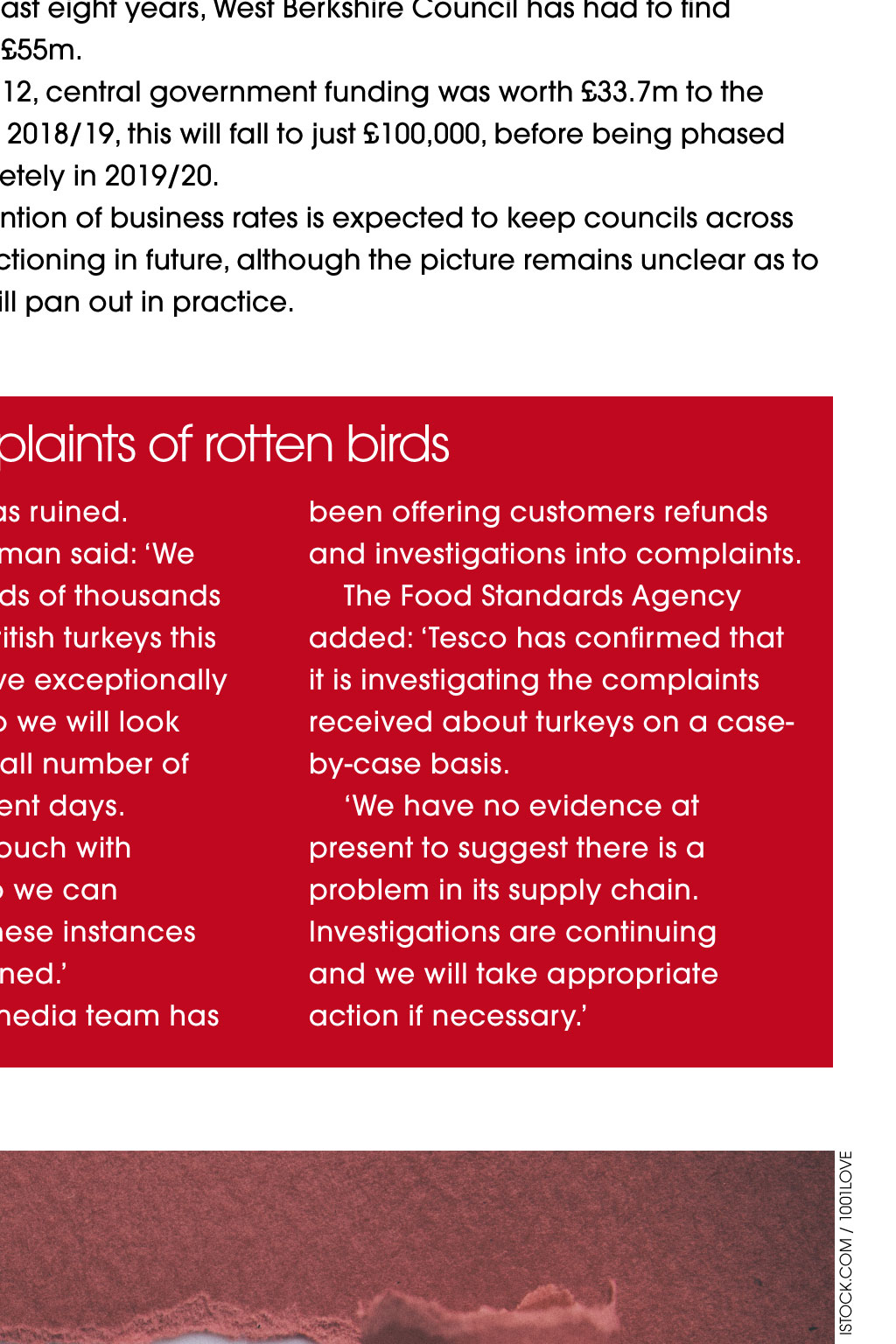
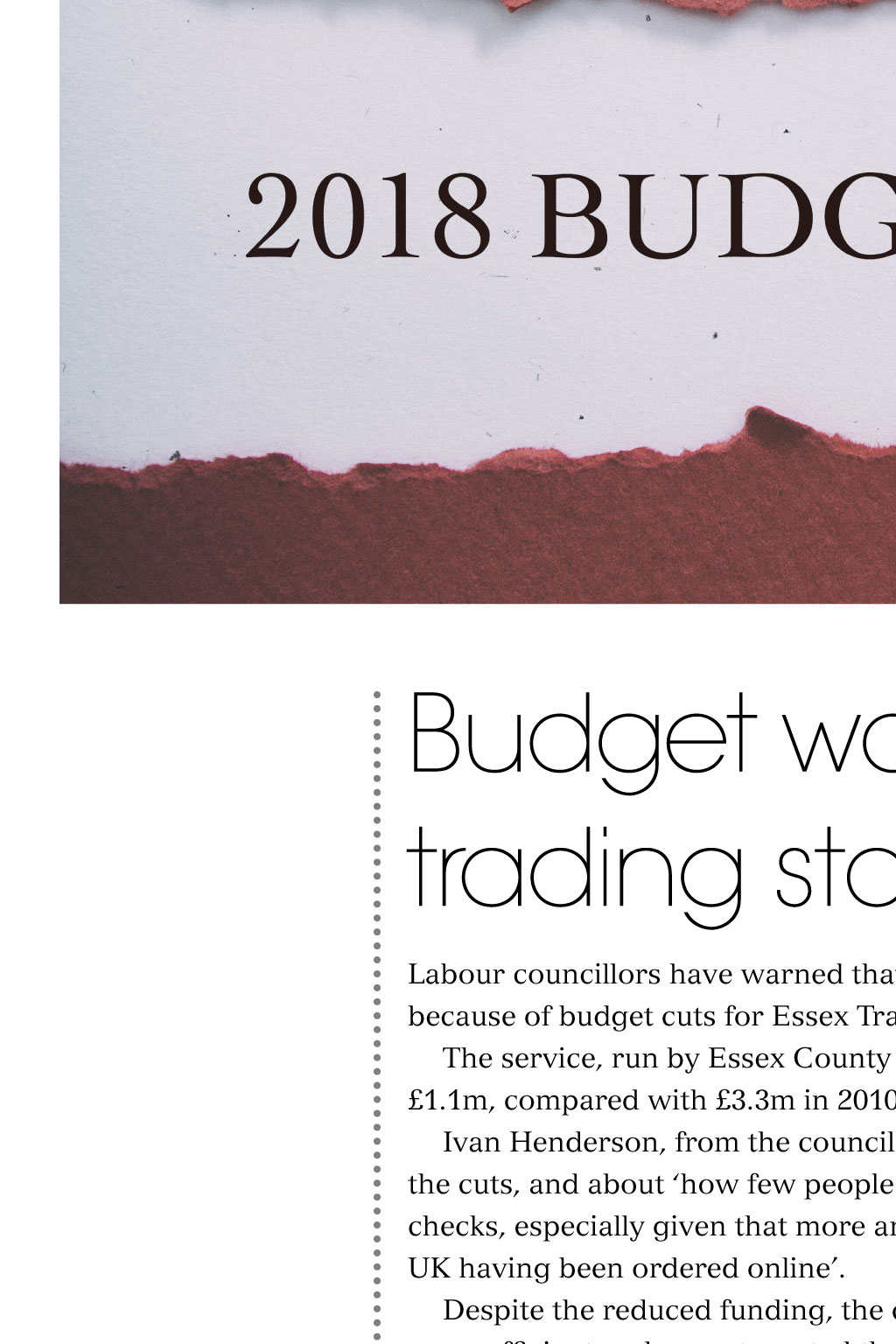
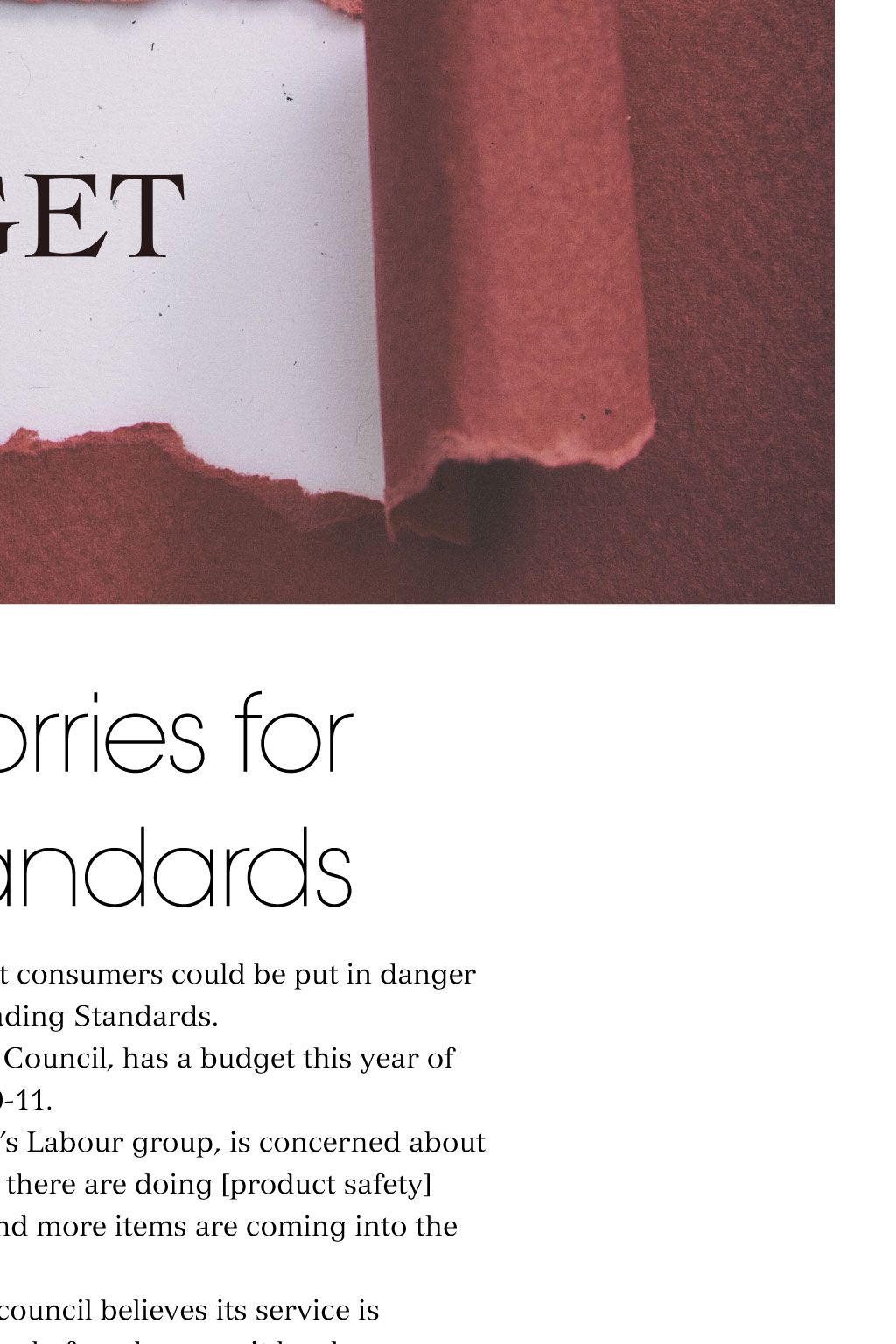
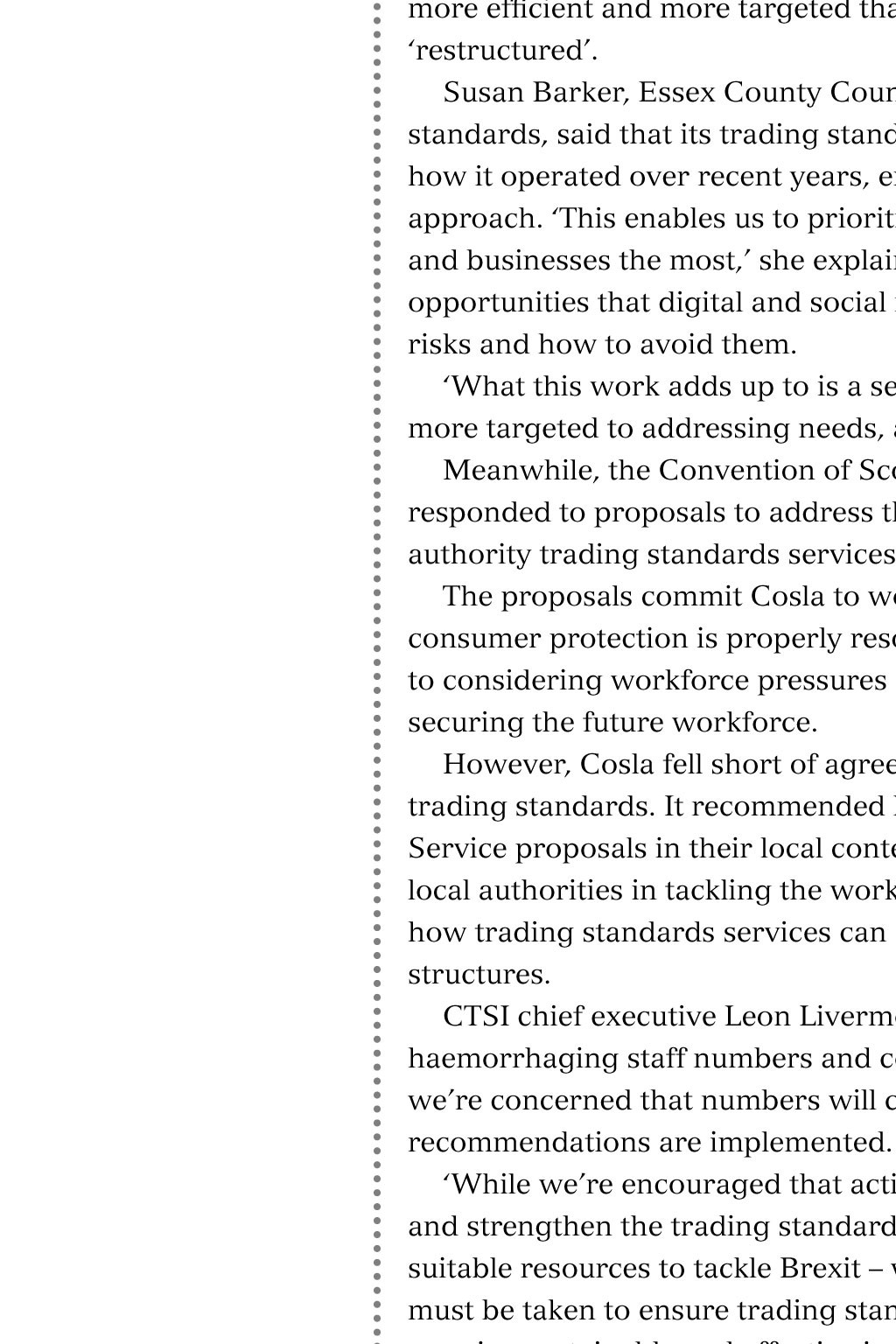
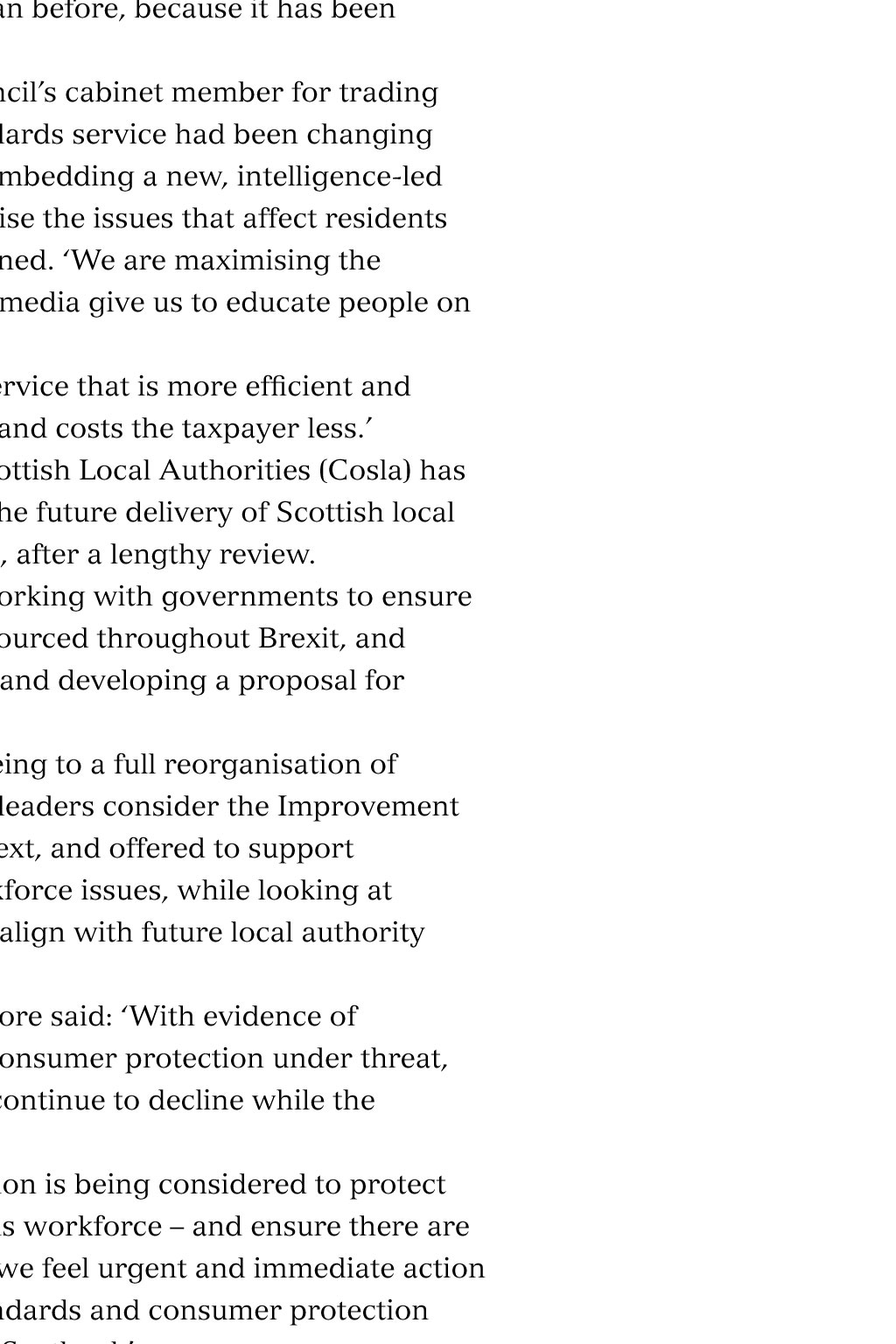





















News Government unable to protect consumer rights, states Lords report The government cannot ensure the protection of UK consumer rights after the UK leaves the EU, according to the House of Lords EU Justice Committee report, published last month. It highlighted that several EU protections, such as those guarding against unsafe goods or rogue traders, wont work in the UK if it does not have membership of key networks and access to cross-border cooperation. The report calls for a clearer plan on easing pressures on national regulators and expresses concern that trading standards authorities are struggling to fulfil their role because of financial restraints even before Brexit occurs in 2019. The committees findings echo those of CTSIs Brexit Think Tank (BTT). According to the BTT, transposing EU legislation into UK law will leave gaps in cross-border networks and mechanisms, such as the EU Rapid Alert System for dangerous consumer products (Rapex). It adds that, without the reciprocal relationships and access to such mechanisms, these laws would be unenforceable. While the House of Lords EU Justice Committee acknowledges that the UK has had considerable influence within the field of consumer protection, maintaining such protections relies on continued access to EU safety networks. Its report sets out the urgent need for government to produce a clear and detailed plan showing how sufficient cooperation with EU networks and bodies will continue after Brexit. CTSI chief executive Leon Livermore gave evidence to the Lords committee in July last year, when he described the governments Brexit bill as a very good starting point. But he added: Bigger challenges lie in relation to some of the specific references in legislation to European bodies, of which we will cease to be members. If you want effective enforcement, and you do not want the UK to become a soft target for rogue traders, we need to maintain the protections that we have now. Speaking in response to the House of Lords report, Livermore said: I wholeheartedly stand by my comments, and am pleased the House of Lords has taken CTSIs and other consumer champions suggestions on board. Trade talks have now been postponed until March, after Prime Minister Theresa May accepted the EU plan to prioritise talks on the transition period rather than the trade framework. International Trade Secretary Liam Fox sought to offer reassurance about the prospect of a no-deal Brexit, highlighting how the UK operates on World Trade Organization (WTO) terms on most trade agreements. The WTO rules are the basis we all operate [on]; the free trade agreements we have are a subset of the WTO rules and thats how most global trade occurs. Thousands of products seized by trading standards The LGA, which represents 370 councils in England and Wales, reported that criminals were cashing in on a surge in demand, with some must have toys being offered online at more than six times their recommended retail price. It is calling for the CE mark to be clearly displayed in the information on websites offering toys for sale. Councils urge people to beware of online sellers offering next-day delivery on toys that are out of stock elsewhere, warning that the items may not exist. iSToCk.Com / SAvoiliC In the run-up to the festive period, councils seized thousands of counterfeit and dangerous toys, according to the Local Government Association (LGA). They included many with parts that could pose a choking hazard to children. Thurrock Trading Standards alone seized 88,000 products, which were tested and found to be in breach of regulations, in a threemonth period at UK ports. In total, 97 consignments were intercepted, from countries such as China, the USA, Nigeria and Hong Kong. Council cuts put CA branch in jeopardy No solar gains for scam company directors Two company directors have been jailed for three years as a result of their involvement in a scam surrounding fake compensation claims for mis-sold solar panels. George Michael Burbidge, of Giffard Park, Milton Keynes, and David Paul Sperring, of Welcombe Grove, Solihull, directors of Verity Claims, took 336,105 from victims but no claims were ever progressed. The prosecution was brought by Milton Keynes Council Trading Standards. Both men pleaded guilty to a charge of conspiracy to defraud. Throughout 2014, the pair coldcalled customers of defunct solar panel companies who had mis-sold the panels, and assured them they would be able to get some, or all, of their money back. They then asked customers to pay a nonrefundable deposit of 495 for supposed legal costs and their service to make a claim on their behalf. However, the solar panel companies had long gone out of business and compensation could not be claimed. Citizens Advice West Berkshire (CAWB) is under threat of closure after its local council proposed slashing funding from 120,000 to 40,000. Local authorities across the UK continue to have to make very difficultdecisions about the public services they offer and support, because of austerity. Central government funding has suffered sustained cuts since 2010. The latest Provisional Local Government Finance Settlement was published in December and, according to the Local Government Association, includes almost no new money for councils. The advice and support services provided by Citizens Advice are not statutory in nature, states West Berkshire councils report on the funding cut. From a legislative perspective, there is nothing that requires us to provide the services offered by CAWB. The authority is proposing to reduce the organisations funding from 120,000 to 40,000 in 2018/19, to help it save 10m in the next year. Three years ago, CAWB received 220,000. The drop in its funding is being proposed despite the local council acknowledging that the rollout of Universal Credit will probably resultin a rise in the number of people requiring complex debt advice, beyond the two hours currently offered by the Department for Work and Pensions. Citizens Advice West Berkshire gives advice on debt, benefits, housing and employment problems, and consumer or tax issues. It also offers help with legal matters, immigration, family and personal matters, and support for carers. Drop-in sessions are held three days a week, and operate with 27 volunteer advisers, 1.5 paid, full-time caseworkers, and a small number of other paid staff. CAWB gave support to around 3,500 clients in 2016. A consultation on the funding cut by West Berkshire Council is open until 10 January 2018. All feedback and recommendations will be considered by the councils executive committee on 15 February 2018. Afinal decision will be made by the full council on 1 March 2018. Funding cut in numbers Over the past eight years, West Berkshire Council has had to find savings of 55m. In 2011/12, central government funding was worth 33.7m to the council; in 2018/19, this will fall to just 100,000, before being phased out completely in 2019/20. The retention of business rates is expected to keep councils across the UK functioning in future, although the picture remains unclear as to how this will pan out in practice. Tesco needs to talk turkey after complaints of rotten birds their Christmas was ruined. A Tesco spokesman said: We have sold hundreds of thousands of great quality British turkeys this Christmas. We have exceptionally high standards, so we will look to address the small number of complaints in recent days. We will get in touch with each customer so we can investigate how these instances may have happened. Tescos social media team has been offering customers refunds and investigations into complaints. The Food Standards Agency added: Tesco has confirmed that it is investigating the complaints received about turkeys on a caseby-case basis. We have no evidence at present to suggest there is a problem in its supply chain. Investigations are continuing and we will take appropriate action if necessary. iSToCk.Com / 1001lovE Supermarket giant Tesco has apologised to consumers after several people complained about foul-tasting, rancid and off Christmas turkeys bought from the store. People described the turkeys as smelling rotten or nasty, while one unhappy customer said their bird tasted of bleach. A number of people have complained about becoming ill after consuming the meat, and say Budget worries for trading standards Labour councillors have warned that consumers could be put in danger because of budget cuts for Essex Trading Standards. The service, run by Essex County Council, has a budget this year of 1.1m, compared with 3.3m in 2010-11. Ivan Henderson, from the councils Labour group, is concerned about the cuts, and about how few people there are doing [product safety] checks, especially given that more and more items are coming into the UK having been ordered online. Despite the reduced funding, the council believes its service is more efficient and more targeted than before, because it has been restructured. Susan Barker, Essex County Councils cabinet member for trading standards, said that its trading standards service had been changing how it operated over recent years, embedding a new, intelligence-led approach. This enables us to prioritise the issues that affect residents and businesses the most, she explained. We are maximising the opportunities that digital and social media give us to educate people on risks and how to avoid them. What this work adds up to is a service that is more efficient and more targeted to addressing needs, and costs the taxpayer less. Meanwhile, the Convention of Scottish Local Authorities (Cosla) has responded to proposals to address the future delivery of Scottish local authority trading standards services, after a lengthy review. The proposals commit Cosla to working with governments to ensure consumer protection is properly resourced throughout Brexit, and to considering workforce pressures and developing a proposal for securing the future workforce. However, Cosla fell short of agreeing to a full reorganisation of trading standards. It recommended leaders consider the Improvement Service proposals in their local context, and offered to support localauthorities in tackling the workforce issues, while looking at how trading standards services can align with future local authority structures. CTSI chief executive Leon Livermore said: With evidence of haemorrhaging staff numbers and consumer protection under threat, were concerned that numbers will continue to decline while the recommendations are implemented. While were encouraged that action is being considered to protect and strengthen the trading standards workforce and ensure there are suitable resources to tackle Brexit we feel urgent and immediate action must be taken to ensure trading standards and consumer protection remains sustainable and effective in Scotland.